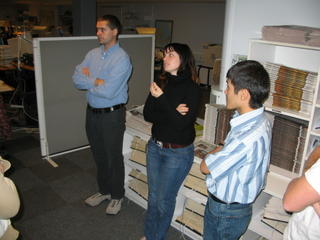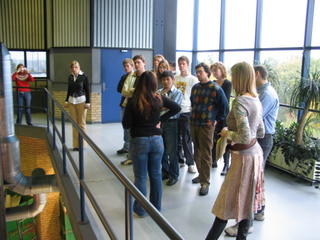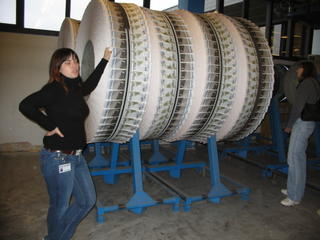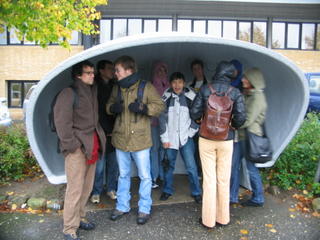In our current class on the “Transformation of the [Nation]-State,” we have been talking about community, identity, democracy, globalization—and the idea of sovereignty and national versus collective security. Interestingly, today, on the BBC’s World Service, I heard that Tony Blair had asked angrily, how are we going to build a more secure world with remarks like that! It's a perfect opportunity to look at a real-world situation and consider some of the questions thrown around in class lately.
Blair was referring to the remarks of Mahmoud Ahmadinejad, the hard-line president of IranIsrael should be wiped off the map.” who said in a speech on the previous day (Thursday) that " Ahmadinejad was speaking at a conference called “World Free of Zionism” held in Tehran.
Iran, by the way, and lest anyone forget, has been pursuing a nuclear program of its own. (According to US State Department information, it has also been stockpiling biological and chemical weapons.) Last month at the UN, Ahmadinejad also gave a very hard-line speech (that I will have to research a bit).
Given this background, and with Ahmadinejad’s latest comments, one can only wonder: where will all this lead us? How does the international community respond—and, in the possible absence of a stern international response, who shall be the standard-bearer? Can or should such remarks be made with impunity? Do these words not reflect an attitude that can only be described as out-of-place and perhaps even dangerous?
Or should Israel’s right to statehood—the very legitimacy of its sovereignty—be re-considered? Can better collective security be achieved without Israel than with it?




